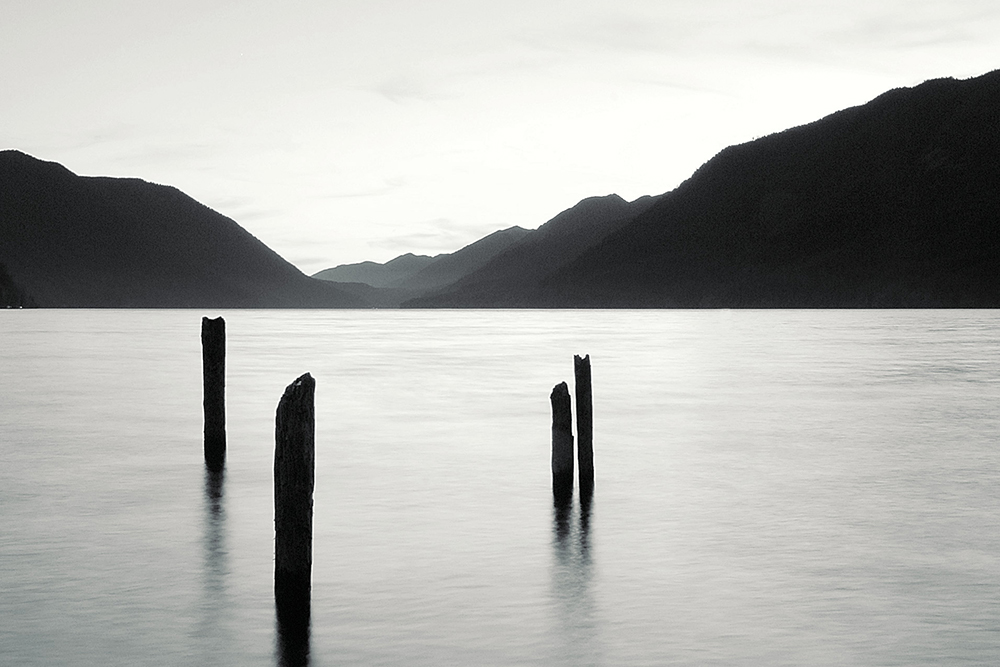Every year, a graduate from each degree program is selected by their peers and faculty to speak at Commencement around a particular theme. This year, the speakers chose the theme “Crossings.” Below is the speech shared by Ryan Kuja, an MATC graduate.
The ancient seafaring people of Polynesia paddled small outrigger canoes thousands of miles on epic inter-island voyages. They were master wayfinders, navigating only by the stars, the presence of certain birds that indicated land was close by, and their intuition. The great expanses of sea between islands was like a middle territory for these migrant peoples, a place between solid ground, between what was and what was yet to come, between the old and the new, the past and future.
Graduation day marks the day each of us is entering a similar middle territory, a watery terrain of disorientation and uncertainty—the stretch of sea between the firm ground of the island on which we have been dwelling, The Seattle School, and the one on which we will situate ourselves, the new places and people on whose shores we will arrive. This middle space between old and new is the place we are entering as we graduate and leave behind all that was.
On graduation day, we are people of the threshold, on the cusp of the sea of unknowing. Six months ago I completed my degree at The Seattle School. Six months ago the outgoing tide began drawing me away from the shore where I had made a home and into the liminal space of crossing, a time that has been marked by both persistent anxiety and hope about reaching the far shore. Land cannot come soon enough.
This time beyond the end and before the beginning is often choked with fear and with desire, with doubt and ambivalence. Many of us are feeling so many disagreeing emotions today. That is what often happens as we near the frontier of the middle. We are asked to make decisions without the information we need, living by the questions alone, the answers swallowed up by the steep ocean swell. We are forced to rely, like the Polynesians, on our intuition and a discerning spirit as we anticipate the arrival for which we so ache, for solid ground on which to stand once more.
A cautious pursuit replaces the relentless chasing of dreams as we pine slowly and awkwardly, steering our ship through the faint luminescence of the deep, controlling nothing and surrendering everything.
We wait and watch.
We listen and feel.
Passage making at sea is by its very nature hazardous and disorienting. The passage we are beginning now also holds its own dangers. The rhetoric of the false self often grows particularly loud in this watery middle place, delivering its all too predictable messages of shame, taunting us with claims that we will never arrive anywhere else, that we have gone off course.
That we are not good enough and don’t deserve that for which our hearts yearn.
The voice of the shadow is persuasive in its effort to make us cave in to the temptation of self-blame. In the middle, it takes the true self’s voice of kindness to combat these inner discourses that make us feel that our ship is sinking.
We all come from the sea, and to the sea we will return, whether the crossing is akin to a quick ferry ride to Bainbridge Island a few miles away or a wild passage across the expanse of the Pacific Ocean.
Whether the crossing is long or short, just like the ancient Polynesians, we won’t live at sea forever. The in-between of crossing is a space made for passing through, not for staying indefinitely. And whoever survives the crossing is, in some way, reborn when their feet encounter the firm, dry earth on the other side.
Voyaging by sea is as old as time itself. And so are the returns home to the shore, to the terrain that we can trust, and to the places and people and vocations which await us.
May the sea we are entering give way to the secure ground for which we yearn.
May each of us navigate safely to the next island with stars to guide our course, birds to reveal land’s presence, and the intuition needed to trust the voyage home.

